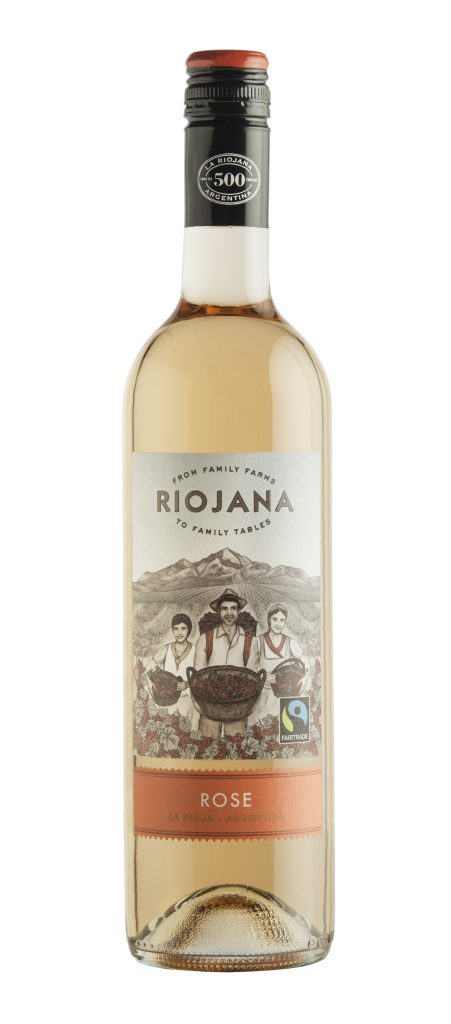Riojana; Rosé, 2016; La Rioja, Argentina, $6.99
Not only is Riojana rosé a very good wine that sells for an incredibly low price, but it is also a wine that you can feel good about drinking.
Riojana wines are produced by La Riojana, a certified Fairtrade cooperative of more than 500 families in the Rioja region of northwestern Argentina. All of the owners are equal partners, a group of small- and medium-scale farmers, who grow the grapes used to make the wine.
In addition to supporting its members by paying them above-market prices for the grapes, the cooperative also uses some of the profits from the sales of the wines to build infrastructure, construct schools and support education programs in the Famatina Valley where the growers live. La Riojana also is building a hospital and supports medical clinics around the area, a company spokesman said in an email.
Started in 1940 by wine-making Italian immigrants, La Riojana now produces about 4 million cases of wine a year. The cooperative has grown to be Argentina’s third largest wine exporter by volume and one of the largest producers of organic wine in the country.
The cooperative was certified as Fairtrade in 2006, and now is the world’s largest producer of fairly traded, organic wine, according to the La Riojana website.
The wine is certified by Fairtrade, an independent international labeling organization that ensures that producers pay sustainable prices for products and adhere to required standards of treatment and compensation of workers. The non-profit was established in 1997 to ensure a better deal for growers and small-scale producers in remote, developing countries.
About 25 percent of La Riojana’s 10,000 acres of vineyards are certified organic, and the cooperative, which uses sheep to do the weeding and fertilizing, has set a goal of moving to 100 percent organic production in the next eight years.
Converting to organic is expensive for small farmers so the organization is covering the costs. However, the conversion expenses are somewhat mitigated by the location of the vineyards in Famatina Valley, an area that runs north and south in the high desert of the Andes Mountains. Dry winds regularly blow through the valley, providing ventilation, shielding grape vines from funguses and harmful insects and limiting the need for fungicides and other pesticides.
The location also has other benefits. The sparse rainfall, hot days and cold nights help the grapes to grow slowly and develop intense flavors, the website says.
La Riojana has a team of seven winemakers led by Rodolfo Griguol, who has been chief winemaker since 1984 and who grew up in the cooperative. His father was an original member and general manager in 1940.
Griguol’s winemaking is also informed by a multi-year break he took from the cooperative in order to study biotechnology in Brazil and earn a doctorate in winemaking in Mendoza, Argentina.
Under Griguol’s guidance, La Riojana produces 10 different labels with multiple wines under each brand. The winemaker is known as the “King of Torrontes” because he mastered the art of producing highly-rated wines from the white wine grape and oversees nearly half the Torrontes production in Argentina.
His philosophy is to “produce wines with great varietal expression (so you can taste the fruit) from the best quality grapes.”
I think he achieved his goal with Riojana Rosé. Although the rosé is a blend — 65 percent Cabernet Sauvignon and 35 percent Malbec — the fruit is at the forefront of the light, well-balanced, lower-alcohol wine.
I really like this wine, which is refreshing and excellent for drinking on a summer evening with light fare. It also has enough flavor to go well with grilled meats, fish and poultry. My wife, Sandy, and I had it with grilled, dry-rubbed chicken and smoked cauliflower. It was an excellent match.
In addition to the rose, Griguol makes four other varietal wines and a red blend under the Riojana label. I particularly like the blend of Bonarda and Malbec for colder weather. The Torrontes and Chardonnay also are very good for the warmer months.
If there’s a downside to Riojana wines, it’s a minor one. The cooperative only sells the wine at co-ops. For Pioneer Valley residents, it’s not a huge problem. The wines are available at the River Valley Co-op in Northampton, The Green Field Market in Greenfield, Brattleboro Food Co-op, Wild Oats in Williamstown, and other area co-op food stores.
Riojana wines are a great value and could easily sell for a much higher price. Check them out.
Suggestions of wines in the $10 range are always appreciated. Warren Johnston can be reached at raiseyourglassofwine@gmail.com. For past recommendations, go to raiseyourglassofwine.com.



